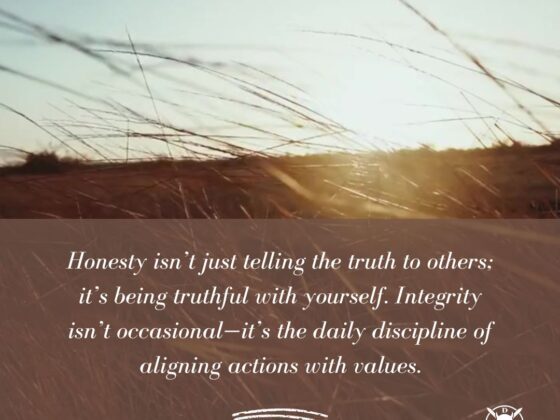“Accounting is the language of business. You have to be as comfortable with that as you are with your native language to really evaluate businesses.”
– Warren Buffet
Understanding financial statements is crucial for anyone looking to manage money, invest wisely, or start a business. Mastering balance sheets, income statements, and cash flow reports is a cornerstone of building a robust skill stack and making informed financial decisions.
Why It’s A Critical Skill
It is a critical skill because it provides a clear picture of a business or individual’s financial health. Whether you’re managing personal finances, evaluating an investment, or running a company, these documents reveal where money comes from, how it’s being spent, and whether financial goals are being met.
At the most basic level, balance sheets show what you own versus what you owe; income statements outline profitability, and cash flow reports track the movement of money.
Whether managing personal finances, evaluating an investment opportunity, or steering a company, these documents are indispensable tools for success.
- Balance Sheets: Show what you own (assets) versus what you owe (liabilities).
- Income Statements: Outline profitability by detailing revenues and expenses over a specific period.
- Cash Flow Reports: Track the movement of money to illustrate liquidity and operational efficiency.
The Risks of Financial Illiteracy
Some bad things can happen if you do not understand the most basic concepts.
- Poor Budgeting Skills: Without understanding income versus expenses—concepts covered in income statements—individuals may overspend, leading to reliance on credit cards to fill the gap. Mismanaging income versus expenses may lead to overspending and reliance on high-interest credit cards.
- Cash Flow Mismanagement: Not grasping the importance of cash flow, as illustrated in cash flow statements, can result in running out of accessible funds, prompting using credit cards for necessities or emergencies. A lack of cash flow awareness can result in financial shortfalls, forcing reliance on costly borrowing.
- Misjudging Financial Health: Just as businesses may fail if they don’t monitor their balance sheets, individuals who don’t assess their financial position (e.g., debts versus assets) might accumulate excessive debt without realizing its long-term impact. Without monitoring balance sheets, individuals and businesses can unknowingly accrue unsustainable debt.
- Failure to Plan for Emergencies: Not understanding the importance of saving or managing liabilities can lead to using credit cards as a financial safety net, which often comes with high interest rates. Insufficient savings or unmanaged liabilities can turn minor setbacks into major financial crises.
My Journey with Financial Statements
Three key influences have shaped my understanding of financial statements, but I want to stress that I am not an expert. Like many others, I am on a journey to improve my financial literacy, constantly seeking to learn and grow. The world of finance is vast, and there’s always something new to discover. Here’s how my journey has unfolded so far:
1. Lessons from a Really Smart Mom
My mother recently retired at 70 as the vice president of a local bank. Starting her career as a bank teller and rising to a leadership position without a college degree, she exemplified financial discipline and sound money management. From her, I learned the basics of budgeting, saving, and understanding how to manage money wisely. While I don’t claim to be as disciplined as she is, her influence has been a foundation for my efforts to understand better and manage finances.
2. Professional Experience
As an IT professional, I’ve worked with companies emphasizing financial responsibility. In one particular role, I was responsible for managing my department’s profit and loss (P&L) statement. This task exposed me to how every decision—an expense or a capital investment—directly affects the company’s financial health. It was a humbling experience that showed me how much I still had to learn about finance and the broader implications of financial decisions.
3. Entrepreneurship
Years ago, I started a high-end audio import business in Japan. This experience was a crash course in financial management. I had to learn how to read balance sheets, income statements, and cash flow records, and I also had to maintain them myself. I was responsible for setting pricing, calculating costs, and maximizing margins and profits. I quickly became familiar with exchange rates, shipping and import costs, and the impact of corporate taxes. These lessons in financial management were practical, challenging, and invaluable. Running my own business forced me to take financial literacy seriously, as every decision directly impacted my company’s success.
These experiences have taught me that financial literacy isn’t just a skill—it’s a critical tool for navigating life’s challenges and opportunities. Whether learning from others, managing a department, or running my own business, I’ve come to appreciate that understanding financial statements is a lifelong practice.
Quick Resources to Get Started
Here are a couple of quick sources to learn more about reading financial statements today:
- Corporate Finance Institute (CFI) Course
- Introduction to Financial Accounting (University of Pennsylvania-Coursera)
- Financial Statements (Duke University-Coursera)
- Financial Statement Analysis (Intuit-Coursera)
Financial literacy is a skill that pays dividends throughout your life. By learning to read financial statements, you’re not just analyzing numbers—you’re empowering yourself to make informed decisions, seize opportunities, and achieve your financial goals.
The Day Warrior
How to find more content from The Day Warrior:
If you enjoyed this newsletter, please subscribe.
If you want to provide feedback, please take The Day Warrior Survey.
If you want to have a deeper discussion about this subject, please get in touch with The Day Warrior.
Follow me on X for daily short and long-form content: @thedaywarrior.
My LinkedIn information is here: https://www.linkedin.com/in/the-day-warrior/
I am also on Instagram: @thedaywarrior.
My website is http:/thedaywarrior.com.
“Never blindly accept what you read online. Always challenge it with an open and critical mind.”
– The Day Warrior.










